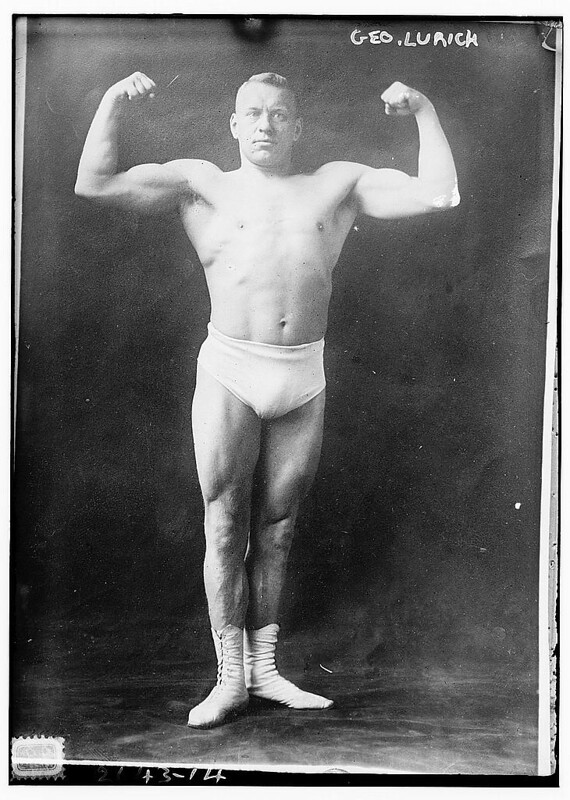THOMAS DUNBAR (7)
By:
February 13, 2023

Gertrude M. Barrows, who would later write under the pen name Francis Stevens, published “The Curious Experience of Thomas Dunbar” in The Argosy in 1904. She was nineteen; this was her first proto-sf story. It’s one of the earliest tales of a lab-created superman — and most likely the first such story by a female author. HiLoBooks is pleased to serialize it here for HILOBROW’s readers.
ALL INSTALLMENTS: 1 | 2 | 3 | 4 | 5 | 6 | 7 | 8.
I followed him to a small office, opening off the laboratory; fitted up much like a doctor’s, it was, with its cabinet of shining instruments. He explained its convenience while he bound up my hands with all the skilled gentleness of an experienced surgeon.
“Accidents are always on view in such a place as mine out there,” he observed, with a nod of his head toward the laboratory.
“I wish you’d tell me what I’ve done,” I said at last when the thing was over.
I felt no weakness, nor any desire for rest, which was odd, seeing the excitement I had been through and my recent illness.
“Two things, then, to be brief,” he replied, smiling rather sadly, I thought. “You’ve accidentally stumbled on a magnificent fact, and you’ve at the same time destroyed, I fear, all results that might have flowed from that fact.”
I stared at him, puzzled.
“You lifted me just now like a feather,” he said abruptly. “You think, possibly, that I don’t weigh much — I’m not a giant. Duquirke,” he called, “come here a minute, will you, please?”
Duquirke appeared, a very mountain of man, all muscle, too. I am up to the six-foot mark myself, and fairly broad in the shoulders, but this fellow could better me by three good inches in any direction.
“You can’t use your hands, of course,” said Lawrence to me; “but just stoop down and stretch out your arm, will you? Now, Duquirke, just seat yourself on his arm. That’s it. Oh, don’t be afraid — he can hold you all right. Ah, I thought so!”
We had both obeyed him, I in some doubt, the Canadian with stolid indifference. But what was my amazement to find that this great big man weighed really comparatively nothing.
I rose, still with my arm outstretched, with perfect ease, and there the fellow sat, perched precariously, his mouth open, his eyes fixed on his master in almost a dog-like appeal.
“What are you all made of?” I gasped. “Cork?”
I let my arm drop, really expecting to see the man fall light as a feather — instead of which he tumbled with a crash that shook the house, and lay for a minute, swearing violently.
Then he got to his feet in a hurry and backed out of the door, his eyes on me to the last, his tongue, really unconsciously I believe, letting go a string of such language as would have done credit to a canal-boat driver.
“What is the matter with you all,” I cried, “or” — my voice sank with the thought — ”with me?”
“Sit down,” said Lawrence. “Don’t lose your head.”
His eyes had widened, and the strange colors I had sometimes caught a glimpse of were blazing in their depths. His wrinkled face was almost beautiful in its animation — lighted as by a fire from within.
RADIUM AGE PROTO-SF: “Radium Age” is Josh Glenn’s name for the nascent sf genre’s c. 1900–1935 era, a period which saw the discovery of radioactivity, i.e., the revelation that matter itself is constantly in movement — a fitting metaphor for the first decades of the 20th century, during which old scientific, religious, political, and social certainties were shattered. More info here.
SERIALIZED BY HILOBOOKS: James Parker’s Cocky the Fox | Annalee Newitz’s “The Great Oxygen Race” | Matthew Battles’s “Imago” | & many more original and reissued novels and stories.
